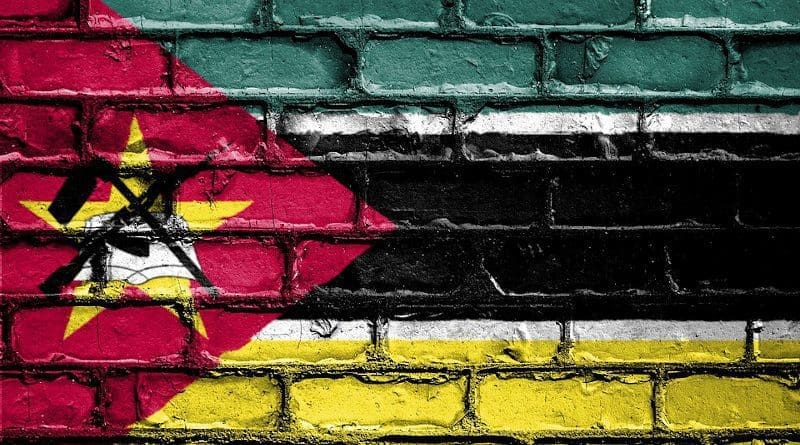IMF Returns To Mozambique After Six Years – OpEd
The International Monetary Fund (IMF) returns with a set of new funded programmes to Mozambique, six years after the lender halted its previous deals in the wake of a financial scandal involving three fraudulent security-linked companies, and two banks—Credit Suisse and VTB of Russia, on the basis of illicit loan guarantees issued by the government under former President Armando Guebuza.
Popularly referred to as “Hidden Debts” scandal involving $2.7 billion (€2.3 million), the financial scandal happened in 2013, and the case has since left an image of a corrupt country and brought high-level government official to testify as witnesses in the controversial judicial trial. It prompted 14 foreign donors, including IMF, to cut off aid and simultaneously sparked a currency collapse and debt crisis.
As the country is struggling to contain the frequent Islamic State-linked insurgency and rising kidnapping of top business people, the IMF has reached an agreement on a $470 million facility lasting until 2025 and further plans to implement development programmes in Mozambique.
“In recent years, the Mozambican economy has been hit by a series of severe shocks that risk intensifying vulnerabilities and worsening socioeconomic conditions,” the Washington-based IMF said in an official statement. It further said the government’s medium-term programmes focused on economic growth, fiscal sustainability, and reforms in public financial management and governance.
One of the world’s most impoverished countries, Mozambique is still grappling with its hefty debt burden, as well as the impact of Covid-19, which led to its first economic contraction in three decades last year.
The funds will be used to support sustainable, inclusive economic growth and long-term macroeconomic stability, in the world’s third poorest country measured by gross domestic production per capita. The programmes will address transparency in debt management and the natural resource sector, the IMF said.
The deal is a landmark for the IMF and Mozambique after relations soured in 2016, when the government owned up to about $1.2 billion of government-guaranteed loans that it had failed to disclose to the fund under the terms of their then agreement. In the aftermath of what became known as the hidden debt scandal, the southern African country has struggled to rebound economically.
Mozambican President, Filipe Nyusi, has praised the resumption of financial assistance from the International Monetary Fund. “This is a great gain for us: they already trust us,” he told officials of his governing Frelimo party in audio released by his office.
“It is a programme that will accelerate the economic recovery of Mozambique, particularly because of Covid-19, terrorism and natural disasters. Nobody was giving us anything especially after the emergence of the hidden debts. I was known as the President of the country of thieves,” stressed Nyusi, and explained further that the instrument approved by the IMF is aimed at ensuring the rapid recovery of Mozambique’s economy and is based on the promotion of good governance, the fight against corruption, macroeconomic stability and debt control.
The Confederation of Economic Associations (CTA) of Mozambique, the largest employers’ organization, described the announcement of the resumption of financial assistance from the International Monetary Fund (IMF) as a “positive sign” that could create a good economic outlook for the country.
“For us, the private sector, this is a positive sign and a good outlook for the financing of Mozambique’s economy, including strengthening international reserves,” said the Vice President of the CTA, Prakash Prehlad, speaking at a press conference in a reaction to the IMF announcement.
Prehlad said that the new financial assistance programmes would promote sustainable and inclusive growth and long-term macroeconomic stability. “Investor confidence is starting to improve. There are still challenges to be addressed, namely the security component, the democratic rule of law and compliance with the law and legality, which will help minimize corruption,” he emphasized.
He noted that the IMF had accepted the new financial assistance programme because it recognised “the Mozambican government’s reforms to improve the transparency of management and rationalisation of public spending. Another critical factor was the hidden debts trial.
Former Mozambican Prime Minister Luísa Diogo told the local Mozambican media that the resumption of direct financial assistance from the IMF would have an “exponential and multiplier impact” because it “lights a beacon” for other cooperation partners.
Luísa Diogo, who served as prime minister between 2004 and 2010, and before that as minister of planning and finance from 1999 to 2005, explained that the IMF’s reputation would make countries, investors and international markets look on Mozambique as again trustworthy, after its credibility was shaken by the hidden debts scandal.
“This signal is essential for Mozambique to reaffirm trust and gives the country the possibility to resurface at an international level, for it to be able to talk on equal terms in the financial markets. These conditionalities always appear in the programmes, and Mozambique will certainly have negotiated the best possible programmes, ones that are feasible and acceptable from the point of view of implementation,” she emphasised.
Luísa Diogo argued that the Mozambican authorities have adopted coherent and consistent macroeconomic management strategies in line with the path the country had been following before the ‘hidden debts’, but that it will have to undertake structural reforms aimed at more sustained economic growth.
An increase in revenue, through efficient tax reform and based on the expansion of the tax base, and the stimulus to production, were among the actions to be taken into account, she added.
The former prime minister however believes that the return of financial assistance is a sign that the IMF and international partners have already understood that the case of hidden debts was a “stumble, a mishap” in the rigorous way the Mozambican state has managed public debt.
With an approximate population of 30 million, Mozambique is endowed with rich and extensive natural resources but remains one of the poorest and most underdeveloped countries in the world. It is a member of the Southern Africa Development Community (SADC).

